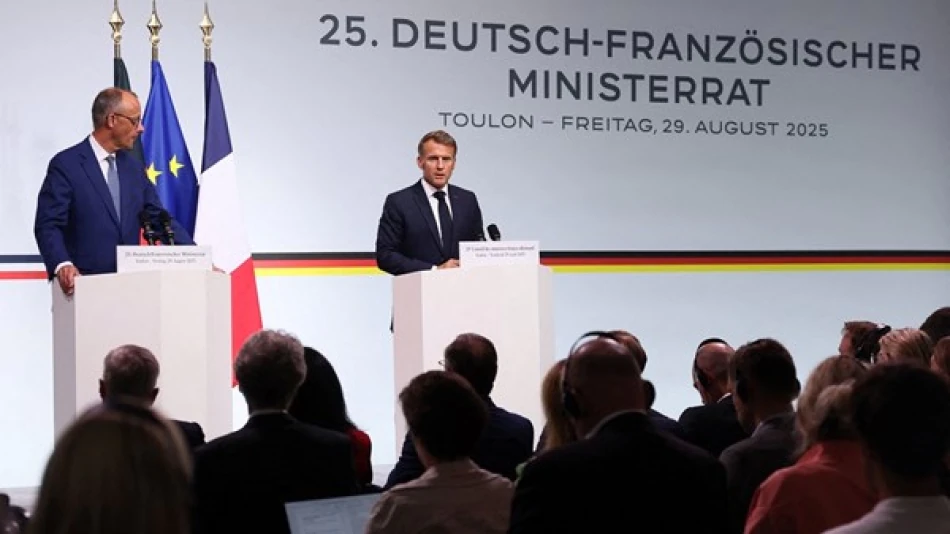
France and Germany Push Back Against Trump's Tech Threats
Europe Draws Battle Lines Against Trump's Tech Tariff Threats
France and Germany have issued a defiant response to President Donald Trump's threat to impose additional tariffs on countries that regulate American technology companies, setting the stage for a potential transatlantic trade war over digital sovereignty. The confrontation highlights a deepening rift between Washington and Brussels over who controls the rules governing Big Tech.
European Leaders Stand Firm on Digital Regulations
During a joint press conference on Friday, French President Emmanuel Macron and German Chancellor Friedrich Merz rejected Trump's Monday ultimatum, which targeted the European Union's Digital Services Act and Digital Markets Act. These landmark regulations aim to curb the power of tech giants and force major internet platforms to address illegal and harmful content.
"Tax and regulatory matters fall under the jurisdiction of our national parliaments and the European Parliament," Macron declared. "No one else will decide for us. Should such measures be taken, they will call for a response from European countries."
Trump's Tariff Gambit Targets EU Tech Rules
Trump's threat represents a significant escalation in the ongoing dispute over digital regulation. The former and returning president warned that any country imposing taxes, legislation, or regulations that discriminate against American technology companies would face retaliatory tariffs.
This challenge directly targets the EU's comprehensive digital framework, which has emerged as the world's most aggressive attempt to regulate tech platforms. The Digital Markets Act specifically targets "gatekeeper" companies like Google, Apple, and Meta, forcing them to open their platforms to competitors and limit their market dominance.
A New Front in the Tech Cold War
The standoff reflects broader tensions over digital sovereignty that have been building for years. While the EU has positioned itself as a global leader in tech regulation, American policymakers increasingly view these rules as protectionist measures designed to handicap U.S. companies.
Market Implications and Corporate Stakes
For American tech giants, the dispute creates significant uncertainty. Companies like Apple, Google, and Amazon have already invested billions in compliance with EU regulations, restructuring their European operations to meet new requirements. A trade war could force them to navigate an even more complex regulatory landscape while potentially facing higher costs from tariffs.
European tech companies, meanwhile, could benefit from reduced American competition if tariffs make U.S. services more expensive. However, they would also face potential retaliation in American markets, where many European firms have significant operations.
Historical Precedent Suggests Prolonged Conflict
The current dispute echoes previous transatlantic trade wars, but with higher stakes given the central role of technology in modern economies. Unlike traditional manufacturing disputes, digital services regulation touches on fundamental questions of privacy, competition, and national security.
The European Commission emphasized earlier this week that regulating economic activities remains a sovereign right of the EU and its member states, signaling that Brussels has no intention of backing down despite American pressure.
Global Regulatory Race Intensifies
This confrontation will likely influence how other major economies approach tech regulation. Countries like India, Brazil, and Australia have been developing their own digital governance frameworks, and the outcome of this dispute could determine whether they align more closely with the European model of strict regulation or American preferences for lighter oversight.
The stakes extend beyond immediate trade concerns to encompass the future structure of the global digital economy and the balance of power between governments and multinational tech corporations.
Most Viewed News

 Layla Al Mansoori
Layla Al Mansoori






